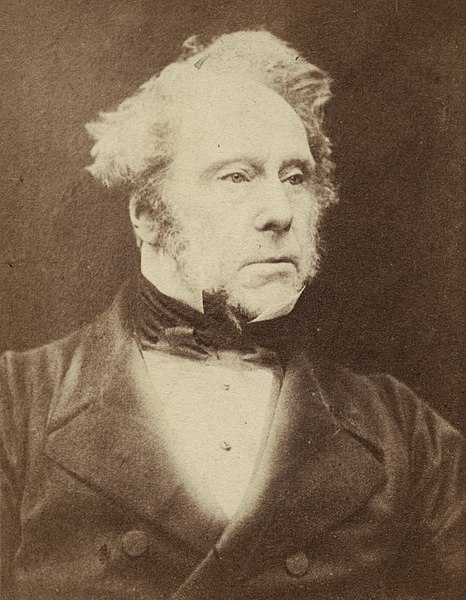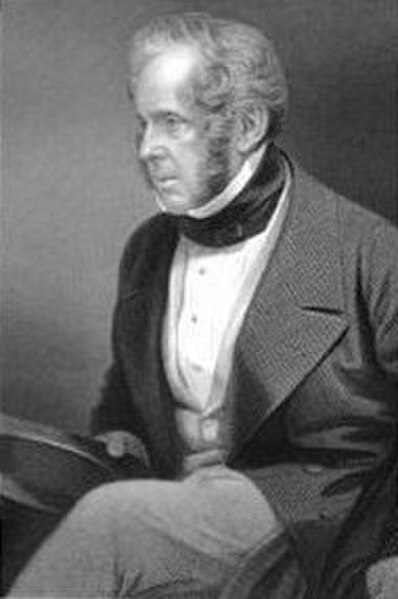Henry John Temple, 3rd Viscount Palmerston
Henry John Temple, 3rd Viscount Palmerston,, known as Lord Palmerston, was a British statesman and politician who was twice prime minister of the United Kingdom in the mid-19th century. Palmerston dominated British foreign policy during the period 1830 to 1865, when Britain stood at the height of its imperial power. He held office almost continuously from 1807 until his death in 1865. He began his parliamentary career as a Tory, defected to the Whigs in 1830, and became the first prime minister from the newly formed Liberal Party in 1859. He was highly popular with the British public. David Brown argues that "an important part of Palmerston's appeal lay in his dynamism and vigour".
Palmerston in 1857
Temple (age 18) in 1802, by Thomas Heaphy
Statue of Lord Palmerston, Parliament Square, London, by Thomas Woolner
Statue of Palmerston in Southampton
The Liberal Party was one of the two major political parties in the United Kingdom, along with the Conservative Party, in the 19th and early 20th centuries. Beginning as an alliance of Whigs, free trade-supporting Peelites, and reformist Radicals in the 1850s, by the end of the 19th century, it had formed four governments under William Gladstone. Despite being divided over the issue of Irish Home Rule, the party returned to government in 1905 and won a landslide victory in the 1906 general election.
Viscount Palmerston
William Gladstone
Liberal politicians David Lloyd George and Winston Churchill enacted the 1909 People's Budget which specifically aimed at the redistribution of wealth.
Liberal poster c. 1905–1910, clockwise from the left: Joseph Chamberlain (satirised as an unmarried mother leaving her baby at a Foundling hospital) abandons his commitment to old age pensions after failing to reach agreement with the Friendly Societies; Chancellor Austen Chamberlain threatens duties on consumer items which had been removed by Gladstone (in the picture on the wall); Chinese indentured labour in South Africa; John Bull contemplates his vote; and Joseph Chamberlain and








